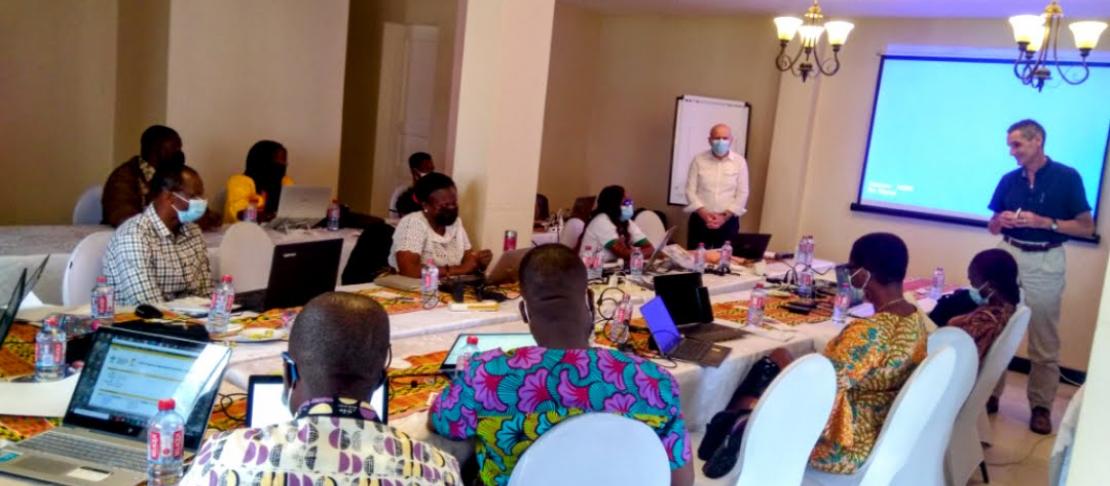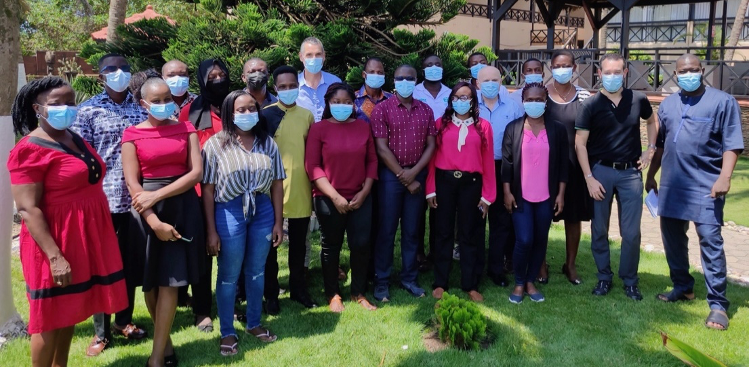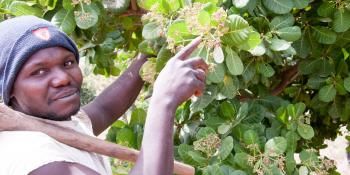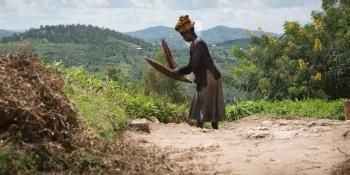Ghana set to generate extensive in-season yield forecasts in 2022

From October 25-29, the International Crops Research Institute for the Semi-Arid Tropics (ICRISAT), the University of Ghana, and the University of Florida organized Ghana’s first training event on the CCAFS Regional Agricultural Forecasting Tool (CRAFT) in Accra, Ghana. Bringing together 25 participants from Georgia, Ghana, Kenya, Mali, Senegal, South Africa, the USA and Zimbabwe, the workshop aimed to strengthen national capacity for within season yield forecasting, to facilitate assessment of impacts of climate fluctuations on crop production and projected impacts of future climate change.
The workshop aimed to: provide the basic concepts of gridded crop simulations; describe algorithms used for regional yield forecasting; describe the CRAFT toolbox architecture and its main components; and conduct hands-on exercises for risk assessment and generate in-season yield forecasts.
A network of tools
CRAFT is a framework for running multi-crop model ensembles in gridded simulations for yield forecasting, agricultural risk analysis and climate impact studies. An initiative of the CGIAR Research Program on Climate Change, Agriculture, and Food Security (CCAFS), CRAFT is currently being developed and maintained by the University of Florida. A key feature of CRAFT is its ability to seamlessly integrate leading crop models such as Decision Support System for Agro-technology Transfer (DSSAT), Agricultural Production Systems SIMulator (APSIM), and Système d'Analyse Régionale des Risques Agroclimatologiques Version H (SarraH) with seasonal climate forecasts statistically downscaled with the Climate Predictability Tool (CPT).
Another feature is its ability to run spatial simulations down to the district level, which is essential for predicting production shortfalls or gluts at adequate levels of detail for government intervention and market regulation. This functionality will be important to accompany the transformation of food systems and the urgent need for food sovereignty in the post-COVID era, with more efficient and competitive national value chains, more circular agricultural production systems, and lower dependence on food imports.

Participants in the CRAFT Ghana training workshop represented eight countries and gathered at the Best Western Premier Accra Beach Hotel in Nungua, Accra, Ghana. Photo credit: PCS Traore/ICRISAT
Next Steps
One emergent implementer of CRAFT is the Ghana Meteorological Agency (GMet) in its capacity and mandate to provide weather and climate services for socioeconomic development int he country. As part of the CASCAID project, GMet was the first national meteorological agency in West Africa to successfully implement the Enhancing National Climate Services (ENACTS) initiative, which provides blended, gridded station-satellite data directly exploitable by CRAFT.
During a visit to the workshop, GMet's Director General Eric Asuman expressed the agency's strong interest in CRAFT and its commitment to preparing the first operational 2022 maize yield forecast for the West African Climate Outlook Forum using the framework. With GMet, the group also discussed the industrialization of frugal, recyclable agCelerant IoT rain gauges, a CASCAID-supported innovation by project partner Manobi Africa.
In addition to the University of Ghana and GMet, other key participating institutions in the workshop included the Ghana Space Science and Technology Institute (GSSTI), Innovations in Development, Education and the Mathematical Sciences in Ghana (IDEMS-Ghana), and the African Institute of Mathematical Sciences (AIMS) represented by seven alumni.



